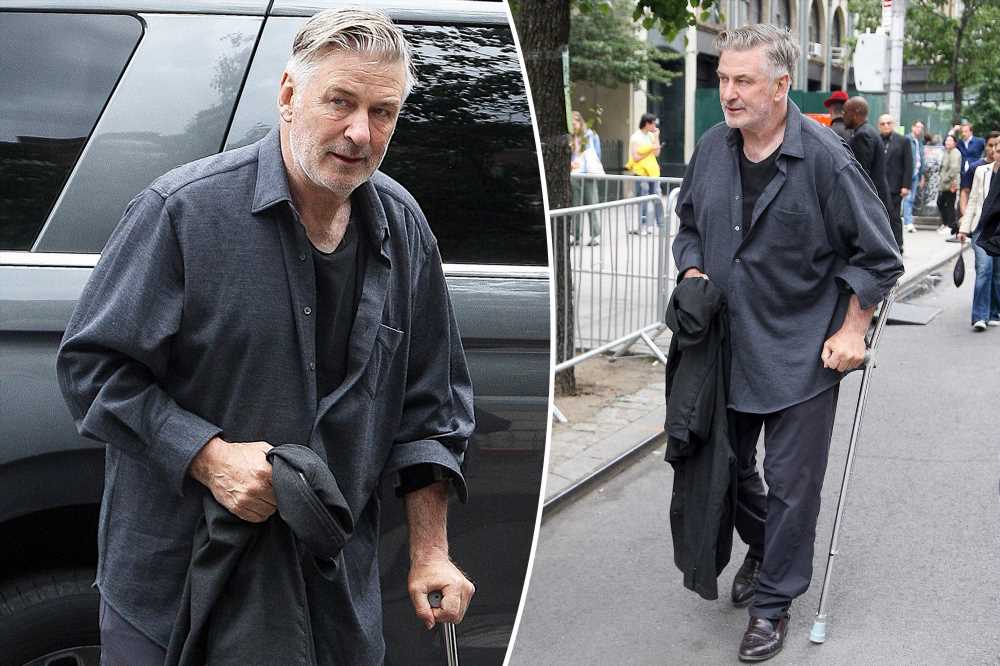Michael Shannon has turned the tables on me.
I’m supposed to be the one conducting the interview, but he’s more interested in what I saw at Cannes. “What did I like?” he wonders. “What was worth watching?” And to hear his probing questions, delivered in the low rumble and unvarnished intensity with which Shannon threatens Superman in “Man of Steel,” momentarily makes my mind go completely blank. What the hell did I watch over there? I manage to conjure up a few films — “Zone of Interest” and “May December,” the title of which I can’t quite grab onto and rechristen as “the Todd Haynes one.” And with that out of the way we’re off, pausing for a few minutes halfway through so Shannon can tell his kid to get ready for a sleepover while he makes him something to eat.
The subject of our talk is “Eric Larue,” a shattering look at a woman (Judy Greer) who is consumed with grief and guilt after her son murders several of his classmates. The film, which marks Shannon’s feature directorial debut, debuts on June 10 at the Tribeca Festival. He confesses he wasn’t really looking to make the move behind the camera, but there was something about Brett Neveu’s script that hooked him.
“I wasn’t predisposed to direct a movie,” Shannon says. “I always found it an intimidating proposition. It always looked like a nightmare — all that responsibility. Everyone needing you to sign off on everything. But when I read the script, I could just see it and feel it in my bones. I knew I had to do it, and I worried if someone else did it, they’d just screw it up.”
Shannon and Neveu knew each other from A Red Orchid Theatre, the Chicago based company of which they are both members. “Eric Larue” had initially been staged there in 2002, and Neveu thought that there were ways to open up the play’s action to make it work on screen. He was inspired to write the drama because of the death of a childhood friend, who shot himself after discovering a gun while a junior high school student.
“When I first wrote the play, I was so angry,” Neveu says. “I was so upset that this had happened. And while that anger is still present, by the time I returned to it, my understanding of grief had changed. I feel like I was able to let the anger go.”
There’s a lot to still be angry about. In the ensuing decades between the stage show and the film, the number of school shootings has grown exponentially, making “Eric Larue” infuriatingly topical. I ask Shannon if he was hoping to make a point about gun violence in America with the movie, and I can sense him tense up.
“I don’t want this to be some sort of bromide or cure all for anything,” he insists. “It’s about people dealing with a terrible situation. I thought it was interesting to tell this story from the perspective of the mother of a murderer, because I don’t think we’d seen that before. It’s about a school shooting, but it’s about a lot of other things. It’s about our country and what it’s like to live here. If I only had one word to describe what movie is about, I would say it’s about confusion.”
Shannon says that’s a state of mind that he shares when it comes to the United States.
“I used to get very vitriolic about my feelings about America and say incendiary things about certain events,” he says, his voice softening. “Now, more than anything, I’m just confused. I don’t know if I love or hate this country. I don’t think America makes any sense.”
For his part, Neveu thinks that grounding the issues of gun violence in a deeply personal story may shift attitudes.
“I hope it can inspire change,” he says. “I have to believe that there’s something that can be done, and for artists, it’s important to reflect an emotional state. And if you approach something without judgment, but with honesty, maybe that’s where change begins.”
The production of “Eric Larue” was not immune from the ferocious political debates that are gripping the country. The movie was initially intended to be shot in Little Rock, but the filmmakers opted to move to North Carolina after Roe v. Wade was overturned and a trigger law in Arkansas went into effect banning virtually all abortions, including cases of rape and incest.
“I felt strongly that we needed to move,” says Shannon. “This insistence on every woman having a baby no matter the circumstances of how they got pregnant. And the disinterest in helping that person once they are brought into the world, it’s all very confusing. I don’t understand why you would mandate that every child be born and not be ready or interested in helping them.”
“Eric Larue” is a showcase for Greer, who plays a woman trying to figure out how to move on in an insular community still reeling from the carnage her son caused. She returns to her work in a big box store, where her employer seems unhappy to have her back. She grapples with her failing marriage — her husband (Alexander Skarsgård) has grown increasingly religious and disconnected from his wife. She attempts to meet with the mothers of some of her son’s victims. But a nagging emotional paralysis persists. It’s a major departure for Greer, best known for comedic supporting turns in “Arrested Development” and “27 Dresses.” But it’s one that Shannon knew she could handle, having worked with her on 2017’s “Pottersville,” a Christmas comedy that seems pretty far removed from “Eric Larue.”
“Judy is super smart and very sensitive and has this huge emotional life that’s very present,” says Shannon. “She doesn’t usually get the opportunity to do something like this, so this felt long overdue.”
Shannon says he enjoyed the experience of making “Eric Larue,” even though he’s “never worked harder on anything.” He’s not sure, though, if he’s going to direct anything else.
“I’m kind of curious to see how this one does before I even think about doing another one,” Shannon says. “I don’t have anything in my back pocket.”
Besides, Shannon’s acting card is pretty full — he’ll reprise his role as General Zod (the guy who did a number on Superman) in this summer’s “The Flash” and will reunite with “Take Shelter” director Jeff Nichols on “The Bikeriders.” But one project that might not be making it to the screen anytime soon is “McCarthy,” a drama that was to see Shannon playing demagogic U.S. Senator Joseph McCarthy under the direction of “The Painted Bird’s” Václav Marhoul.
“That thing has just stalled,” Shannon confesses. “They can’t get the money. It’s a shame, because I really want to work with Václav. This guy is a badass. All he wants to do is make this movie, but the producers can’t get it together.”
Read More About:
Source: Read Full Article


